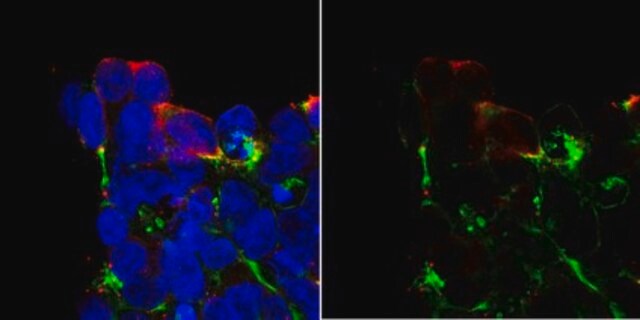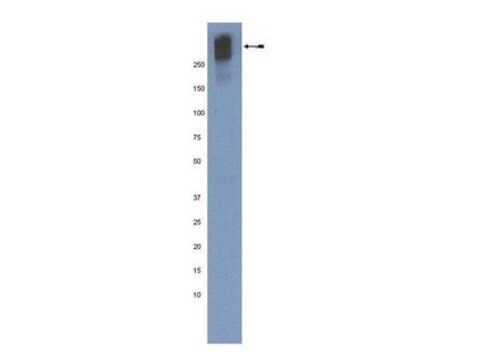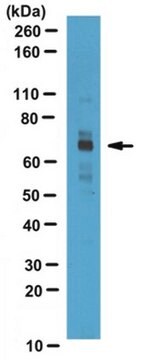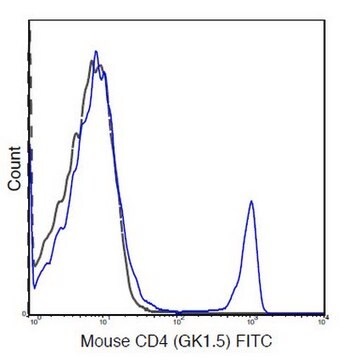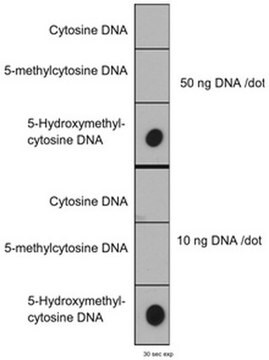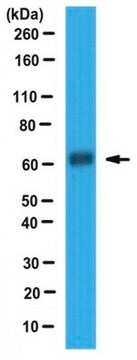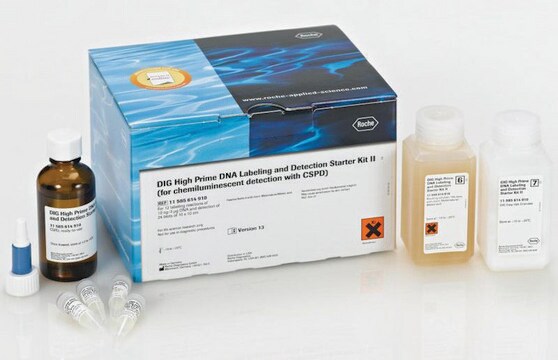MABE324
Anti-MSH3 Antibody, clone 1F6
clone 1F6, 1 mg/mL, from mouse
Synonym(s):
DNA mismatch repair protein Msh3, Protein repair-1, REP-1, Protein repair-3, REP-3
About This Item
WB
western blot: suitable
Recommended Products
biological source
mouse
Quality Level
antibody form
purified immunoglobulin
antibody product type
primary antibodies
clone
1F6, monoclonal
species reactivity
mouse
concentration
1 mg/mL
technique(s)
immunocytochemistry: suitable
western blot: suitable
isotype
IgG1κ
NCBI accession no.
UniProt accession no.
shipped in
wet ice
target post-translational modification
unmodified
Gene Information
mouse ... Msh3(17686)
General description
Immunogen
Application
Epigenetics & Nuclear Function
Transcription Factors
Immunocytochemistry Analysis: A representative lot detected MSH3 in C2C12 cells (Prof. Glenn Morris, Wolfson Centre for Inherited Neuromuscular Disease.; Holt, I., et al. (2011). J Cell Biochem. 112(6):1612-1621.).
Quality
Western Blotting Analysis: 0.5 µg/mL of this antibody detected MSH3 in 10 µg of C2C12 cell lysate.
Target description
Physical form
Storage and Stability
Disclaimer
Not finding the right product?
Try our Product Selector Tool.
Storage Class Code
12 - Non Combustible Liquids
WGK
WGK 1
Flash Point(F)
Not applicable
Flash Point(C)
Not applicable
Certificates of Analysis (COA)
Search for Certificates of Analysis (COA) by entering the products Lot/Batch Number. Lot and Batch Numbers can be found on a product’s label following the words ‘Lot’ or ‘Batch’.
Already Own This Product?
Find documentation for the products that you have recently purchased in the Document Library.
Our team of scientists has experience in all areas of research including Life Science, Material Science, Chemical Synthesis, Chromatography, Analytical and many others.
Contact Technical Service